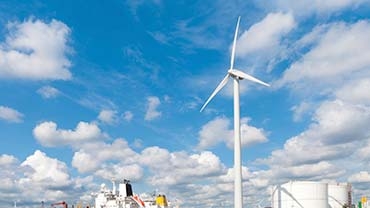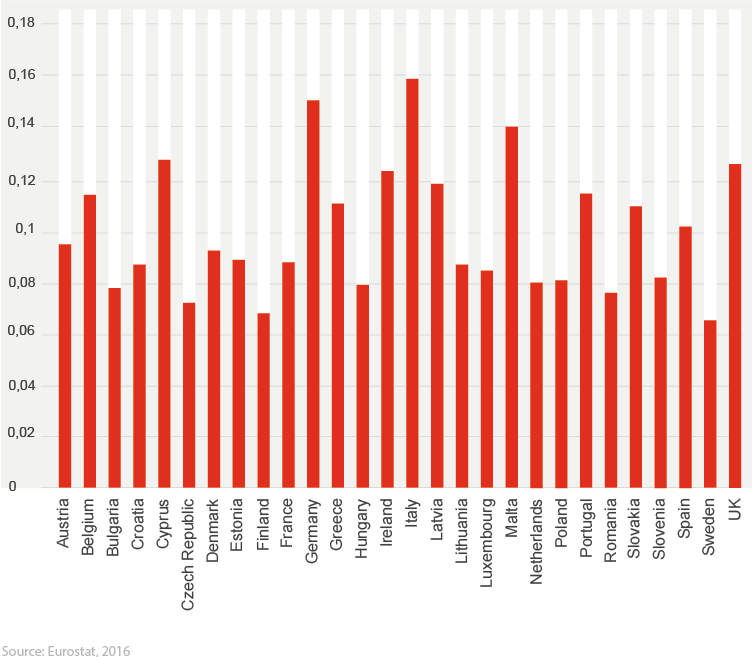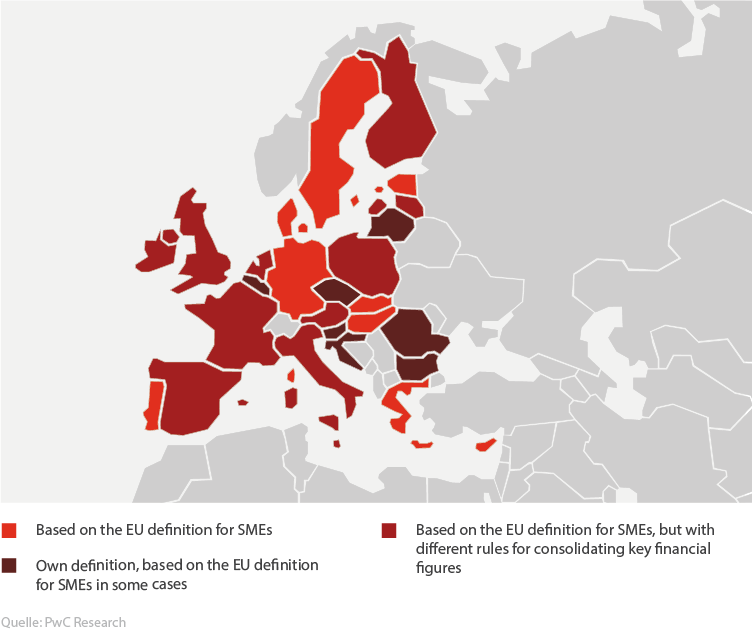
Regulatory Management in Europe
In what ways companies sustainably utilise opportunities in international energy management
The energy industry in Europe is characterised by a range of different regulatory requirements and prices across the EU member states. With regard to energy prices, different aspects influence the individual price components. For instance, production costs are affected by geographical circumstances, while taxes and levies are decided upon by policymakers and national regulatory authorities. Examples of regulatory differences between states also include requirements for conducting energy audits and different reporting deadlines, which must be borne in mind for energy-related matters.
Therefore, multinational companies must not only be mindful of many different regulations, but also identify opportunities to cut their energy costs.
We leverage our in-depth knowledge of the European energy market and our international network to support companies in meeting regulatory requirements and identifying potential savings.

Your contact for Regulatory Management in Europe
Nicolas Deutsch
Tel.: +49 69 9585-3962
Contact us now
International energy management: What are the options?
The key to success lies in energy management, which takes into account the specific regulatory requirements of each country. Due to different degrees of regulation and different national laws, both compliance requirements and energy prices vary greatly from country to country.
Holistic energy management for a sustainable reduction of energy costs
In general, energy price components can be divided into three groups: production and distribution, taxes and charges, and network charges.
In order to reduce energy costs sustainably, companies should not only focus on optimising energy procurement, but also implement a holistic energy management.
In many countries, industrial organisations have the option to reduce their taxes, charges and levies if, for example, they have a minimum purchase volume, if they belong to an energy-intensive industry or if they implement energy efficiency measures. Network charges also offer an option for cost reduction, e.g., based on the voltage level or the right timing of the annual peak load.
Electricity prices vary greatly in the EU
Electricity price (€ per kWh), incl. fiscal charges for medium-sized industrial enterprises

The differences in electricity prices across the EU are mainly due to various taxes, levies and network charges. In the western and southern countries, taxes and levies generally comprise a particularly high share of electricity prices (e.g., more than 40 percent in Germany and Italy), while in central and eastern countries network charges tend to constitute a greater portion of the price.
Energy audits in the EU
Following the implementation of the EU Energy Efficiency Directive, large companies have been obligated to conduct Europe-wide energy audits since December 2015. The audits must be carried out every four years; if not, organisations may be subject to severe penalties. As countries across Europe implemented the EU Directive differently, national specifications must be taken into account. We develop tailor-made plans to ensure energy audit compliance for companies in each country.
Individual national specifications for fulfilling energy auditing obligations
Which companies must conduct an energy audit?

"When companies lack country-specific expertise, they can miss out on the potential for significant financial savings and even incur penalties for non-compliance. With our international network of energy experts, we help you to find the right solution for your international energy cost management needs."
Can your company benefit from international energy management? PwC can help you.
- Do you have locations in Germany and abroad?
- Do you direct and manage your energy management from a central location?
- Do you depend on information from each national company for management?
- Are you planning to expand your activities abroad?
- Would you like professional support in optimising energy costs?
- Does the growing number of regulations, reporting requirements and deadlines pose a challenge for you?
- Would you like to exploit opportunities to reduce the tax burden?
- Is your company required to conduct an energy audit?
If you answered yes to at least four of these questions, you can benefit from PwC’s holistic advice. Ask our experts!

Contact us








